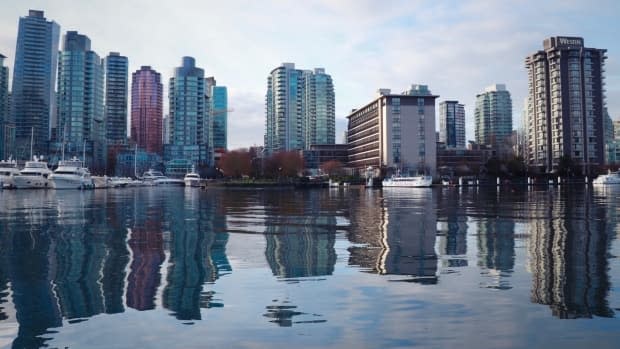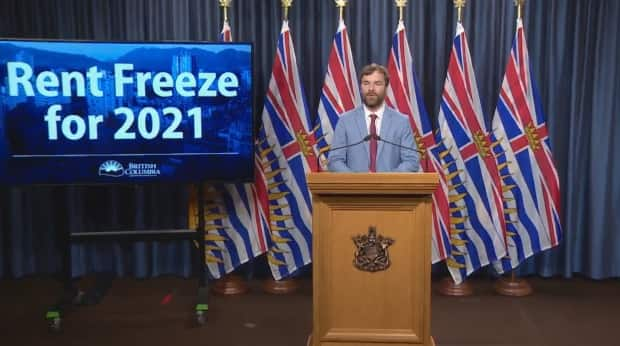B.C. to extend rent freeze to end of 2021, increase protections against 'renovictions'

The British Columbia government says it will introduce legislative changes to extend a rent freeze through to the end of this year to stop illegal "renovictions" and improve the dispute resolution process for tenants and landlords.
The province has already introduced and extended a rent freeze during the COVID-19 pandemic, and it says in a news release Monday that new legislative changes will keep it in place through Dec. 31.
It says tenants can disregard any notice of a rent increase they've received that would have taken effect before Jan. 1, 2022, and starting next year rent hikes will be capped at the rate of inflation.
The release says before the NDP government took power in 2017, the maximum allowable rent increase was as high as 4.3 per cent, well above inflation.
'Progress'
"We know there's more to do, but with these new changes, we're continuing to make progress," said Spencer Chandra Herbert, MLA for Vancouver West End.
The province also says the legislative changes mean tenants will no longer face so-called renovictions, or eviction notices for "phoney" renovations aimed at driving out long-term tenants and jacking up the rent.
Landlords will be required to apply to the Residential Tenancy Branch before they can end a tenancy agreement for renovations, and they will also not be able to evict tenants for renovations that are not substantial or do not require the unit to be vacant.
'Not surprised'
Andrew Sakamoto, executive director of the Tenant Resource and Advisory Centre, said as part of the release that it is common for landlords to illegally renovict tenants without the necessary permits required by law or for minor cosmetic improvements.
"Rather than forcing tenants to dispute these types of meritless eviction notices, we are pleased that landlords will now have to go through an application process before issuing such notices in the first place," he said.

David Hutniak, CEO of Landlord B.C., which supports landlords in the province, says the extended period of frozen rents was expected.
"We're not surprised," he said about Monday's announcement.
He said that by the end of 2021, it will be close to two years since landlords have been able to raise rents to help cover property taxes, insurance, maintenance costs and increased costs due to the pandemic
"Which is very challenging ... COVID-related expenses are going through the roof," he said.
He says his members are looking forward to increasing rents in line with inflation in 2022.
The bill with the proposed changes comes on the first day that the Legislative Assembly of British Columbia resumed its 42nd parliamentary session.
The bill stems from 23 recommendations made by a B.C.'s rental housing task force in 2018, which focus on protecting tenants from situations where they are forced to move out by landlords who say they plan to renovate the property.
Monday's bill includes expanding administrative penalties that can be levied as part of dispute resolution proceedings and grounds for the review of arbitrator decisions.
The bill also clarifies language in the Manufactured Home Park Tenancy Act to address conflicts between park rules and tenancy agreements.

 Yahoo Movies
Yahoo Movies 